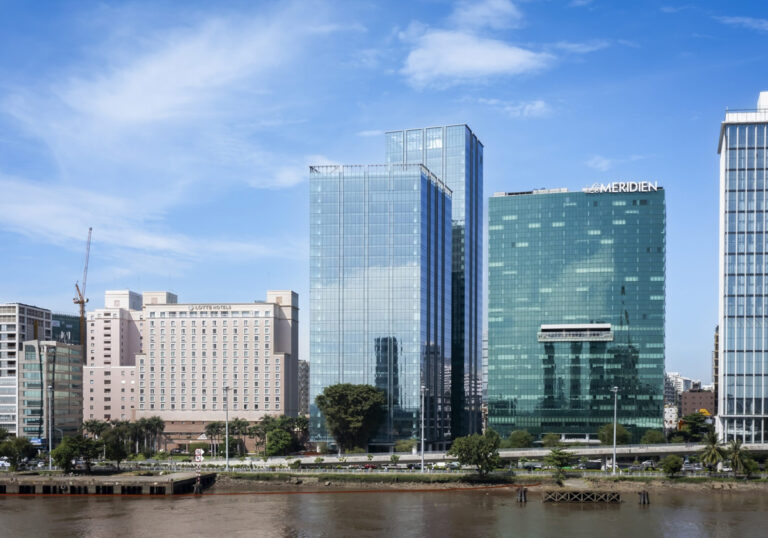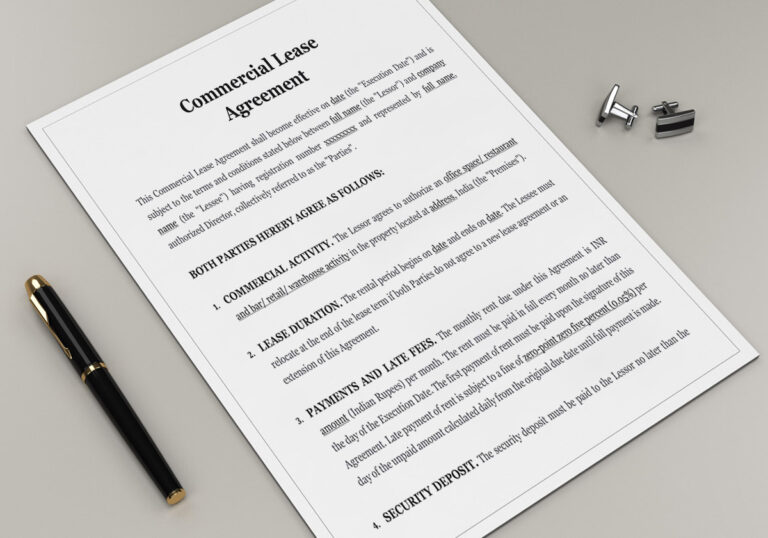Serviced Office vs. Traditional Office: Which One to Choose?
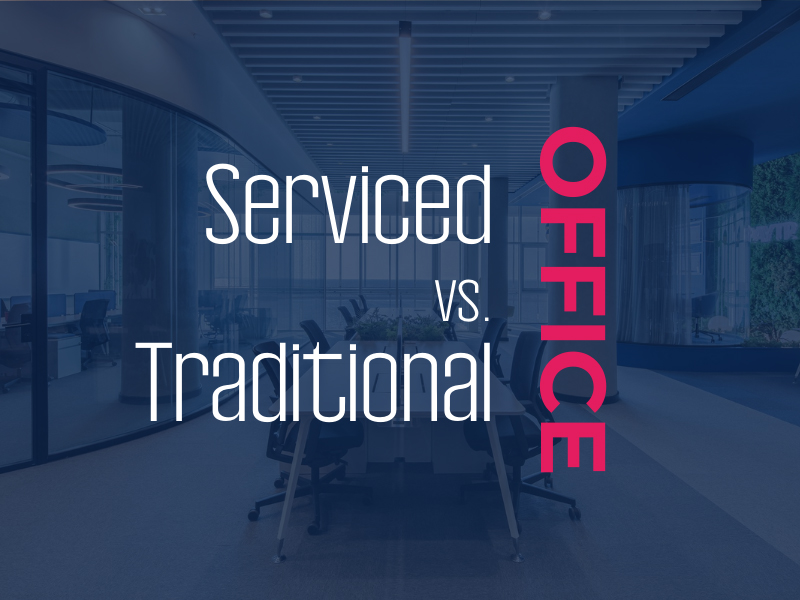
When choosing a workspace, businesses often consider two main options: Serviced Office and Traditional Office. Each model offers distinct advantages and limitations depending on the company’s size, goals, and budget. Understanding the core differences between these two can help businesses make informed decisions that optimize cost and operational efficiency.
Table of Contents
1. What is a Serviced Office?
A serviced office is a fully furnished and professionally managed workspace that allows businesses to commence operations immediately without incurring setup costs. It typically includes essential office infrastructure such as desks, chairs, internet access, meeting rooms, reception services, and shared amenities such as kitchens or lounges. The provider handles maintenance, cleaning, security, and utility expenses, enabling tenants to focus entirely on their core business operations.
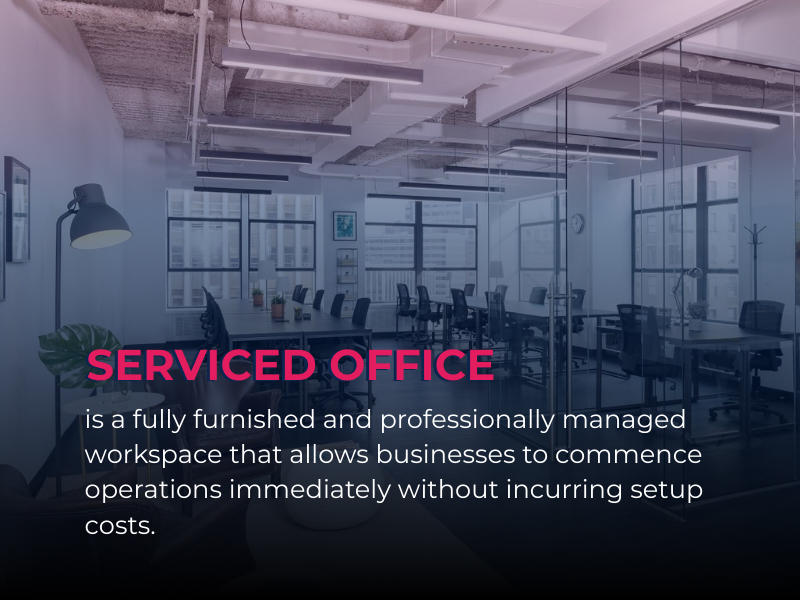
Unlike traditional offices, which require companies to handle leasing, furnishing, and facility operations independently, serviced offices provide an all-inclusive solution under a single monthly fee. Businesses can lease space on a short-term basis – monthly, weekly, or even daily – without being tied to long-term contractual commitments.
Serviced offices are commonly located in professional office buildings and offer dedicated workspaces ranging from 10m2 to 200m2, accommodating teams of two to several dozen people. This model is particularly beneficial for startups, SMEs, remote branches, or companies entering new markets.
Advantages of Serviced Offices:
– No upfront investment in furniture, equipment, or office setup.
– Short-term rental options (monthly, weekly or even daily).
– Fully equipped with internet, utilities, cleaning, and maintenance handled by the provider.
– Easy to scale up or down based on business needs, with flexible space options.
– Prime locations in prestigious business districts, offering a professional image.
– Comprehensive operational support, enabling businesses to focus on their core activities.
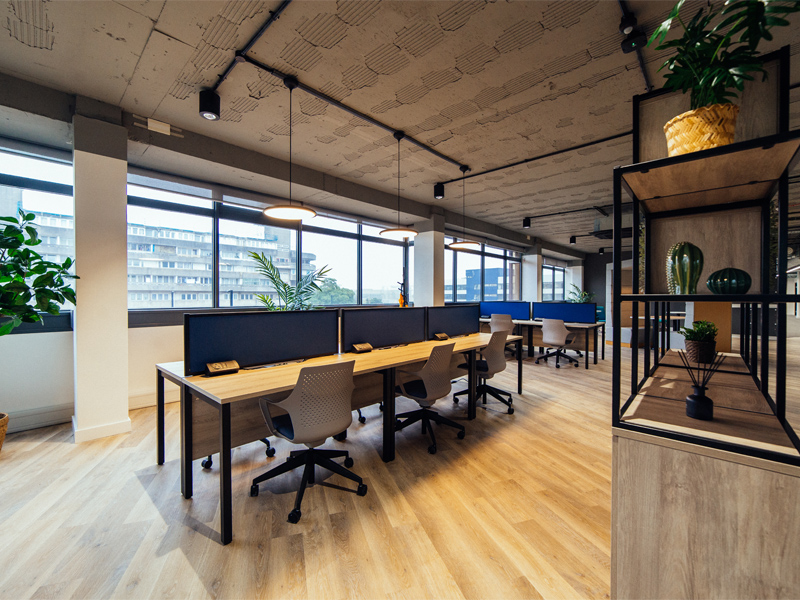
Disadvantages of Serviced Offices:
– Less privacy compared to a traditional office setup.
– May not suit businesses looking for a unique brand identity.
– Businesses are dependent on the provider for maintenance, quality of services, and resolving any issues.
2. What is a Traditional Office?
A traditional office is a permanent workspace that a business leases or owns on a long-term basis and customizes according to its specific needs. This model requires the company to manage all aspects of the space, including furnishing, interior design, utilities, maintenance, cleaning, and security.
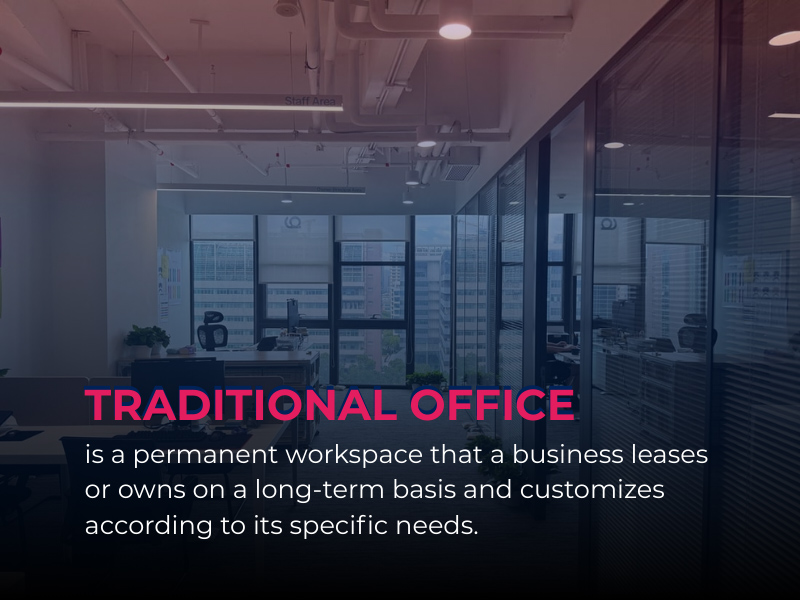
Traditional offices are often preferred by established companies seeking a permanent, branded environment tailored to their operations. The lease terms are typically longer – ranging from 3 to 10 years – providing greater control over workspace but also involving significant upfront investment and ongoing management responsibilities.
Advantages of Traditional Offices:
– Full control over office layout, design, and branding elements.
– Enhanced privacy and security due to exclusive use of the space.
– Suitable for long-term strategic planning and permanent team placement.
– Ability to build a unique brand identity through customized interiors.
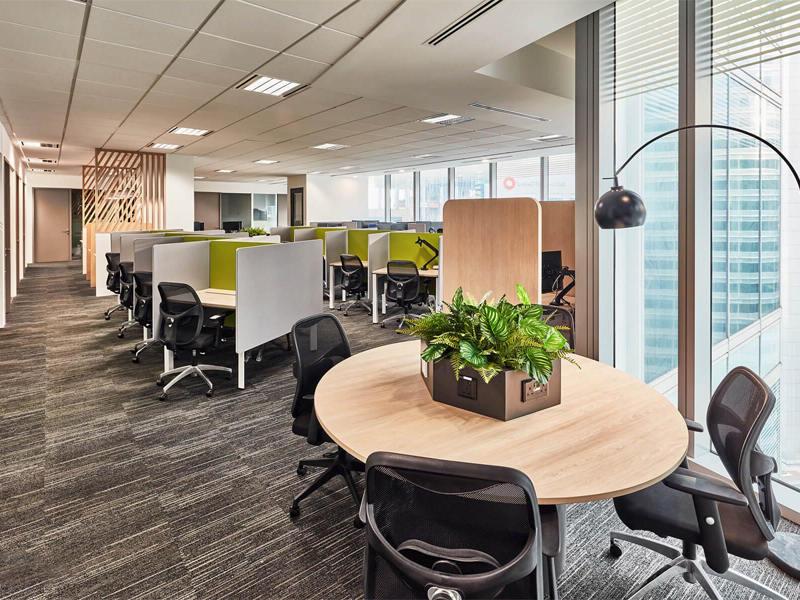
Disadvantages of Traditional Offices:
– High upfront costs for leasing, furnishing, renovation, and office setup.
– Long-term lease commitments reduce flexibility.
– High responsibility for all operational aspects.
– Longer setup time before the space becomes operational.
See more:
3. Comparison: Serviced Office vs. Traditional Office
Serviced offices and traditional offices represent 2 fundamentally different approaches to workplace management. Understanding their core differences is essential for businesses to select the model that best aligns with their goals, resources, and operational characteristics.
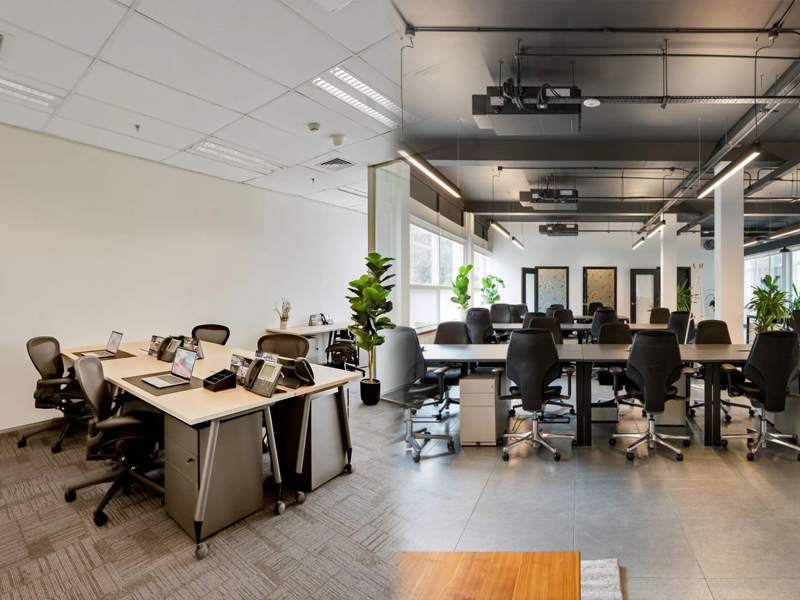
The table below provides a clear comparison across key criterias:
| Criteria | Serviced Office | Traditional Office |
| Setup Time | Immediate move-in, ready to use | Requires significant time for setup, including furnishing and renovations. |
| Initial Investment | Low upfront costs; all-inclusive in the monthly fee. | High upfront costs for leasing, furnishing, and custom setup. |
| Lease Term | Flexible terms (daily, weekly, monthly). | Long-term commitment (typically 3 to 10 years). |
| Customization | Limited customization due to standardized designs. | Full control over design, layout, and branding. |
| Operational Management | Managed by the service provider, including maintenance, utilities, and services. | Managed by the tenant, including all operational aspects. |
| Location | Often located in prime business districts, offering high visibility. | Location can vary; may be in less central areas depending on budget. |
| Scalability | Easy to scale up or down as per business needs. | Scaling requires significant effort and time, often involving complex adjustments. |
| Privacy | Lower privacy due to shared spaces with other businesses. | High privacy with dedicated, enclosed spaces. |
| Corporate Image | Professional image but limited ability for personalized branding. | Strong brand identity can be established through customized interiors. |
| Target Audience | Ideal for startups, SMEs, project-based teams, and businesses with temporary needs | Best suited for established companies with long-term business plans. |
Serviced offices offer agility, convenience, and lower upfront costs, making them ideal for startups, SMEs and businesses entering new markets. On the other hand, traditional offices provide greater control, privacy, and brand-building potential, best suited for established businesses with long-term operational plans.
The optimal choice between serviced and traditional offices ultimately depends on the organization’s strategic goals, budgetary constraints, and long-term growth prospects.
>> See more: Office Space Lease Agreement Template in VietNam
4. When to Choose Which Model?
Choosing the right office model is crucial for aligning a company’s operational needs with its strategic goals. Understanding when to choose which – serviced office or traditional office – can significantly impact a business’s long-term success.
Serviced office leasing is a good choice for:
– Startups needing a cost-effective and flexible office space to grow without long-term commitments.
– Small and medium-sized enterprises (SMEs) looking for flexible growth opportunities with low initial costs.
– Project-based teams requiring temporary office space with easy scaling options.
– Businesses entering new markets or establishing a presence in a location without the risk of long-term leases.
– Remote teams that need a central office for occasional meetings or collaboration.
– Entrepreneurs or individuals who need a professional office environment without the overhead of setting up a traditional office.
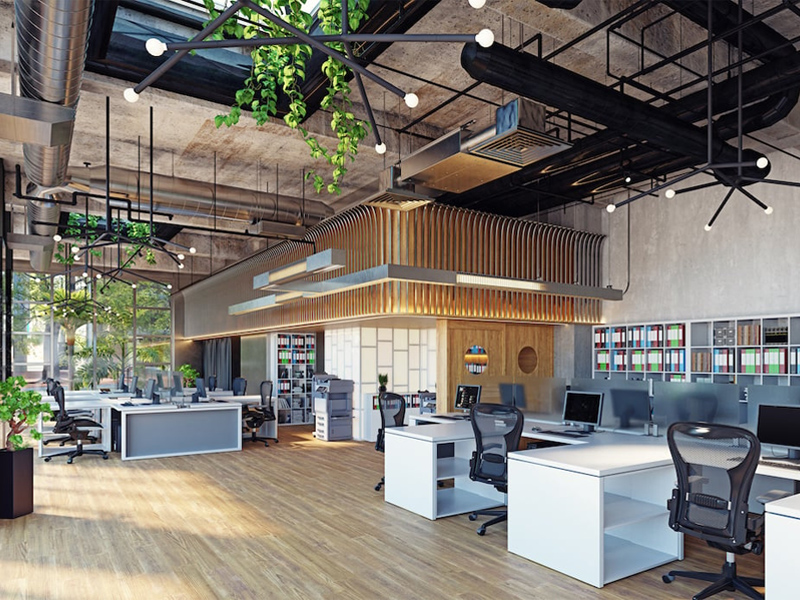
In contrast, traditional office is a good choice for:
– Established companies with stable operations looking for long-term and cost-effective office space.
– Businesses with specific branding needs that require a highly customizable office environment to reflect their identity.
– Companies seeking privacy and security, such as financial institutions, law firms, accounting agencies,…
– Organizations with long-term space requirements, allowing them to benefit from the cost savings of a multi-year lease.
– Companies that prefer a permanent presence in a location, offering stability and consistency to employees, clients, and partners.
Serviced office offers flexibility, cost-efficiency, and convenience, making them ideal for startups, SMEs, and project teams. With minimal upfront investment and fully equipped workspaces, businesses can scale quickly without long-term commitments. On the other hand, traditional offices provide more control, privacy, and customization but come with higher upfront costs and longer lease terms. Ultimately, the decision depends on a company’s specific needs, financial capacity and growth plans.
Whether you’re a startup, a SME, or a large enterprise, Maison Office provides flexible and fully-equipped spaces adapted to your needs. We offer professional consultation and a wide selection of premium office buildings to help you find the right space efficiently and cost-effectively. Let Maison Office be the key to unlocking your company’s potential!
Contact us now at hotline: 098.890.2468 to discover your perfect workspace!

Editor and content team manager at Maison Office.
With over 5 years of experience in consulting and extensive content editing in the real estate services and interior design field. Sharing valuable information with customers, partners, and attracting millions of views.


